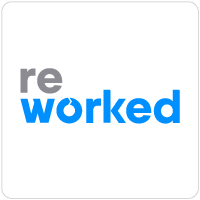5 Ways to Create an Amazing Employee Experience in Your Organization
Employee experience is the latest buzzword in leadership, but it’s the most important one you need to know in the coming years. Where employee engagement measures the level of engagement for your employees, employee experience takes a more holistic view. For traditional companies, this way of thinking is challenging, but there are five ways you can create an amazing employee experience in your organization, no matter how far along you are.
Leadership and Siloes
The assembly line was an innovation in human productivity. By doing the exact same thing every single day, a worker would excel at doing that one thing. As companies expanded beyond the factory floor, they often carried this assembly line mentality into new areas. Design lived in its own little silo, sometimes in a different state than the rest of the company! Everybody had their own little home and tended to view other departments as separate. Sales didn’t talk to marketing. Design didn’t talk to customer service. And NOBODY wanted to talk to HR!
When someone is assigned to oversee employee experience, and when that person is sitting on the board in a C-level position, it creates a single bridge between all the different siloed operations. A single point of contact with the authority to make changes and solve problems can synthesize information from different sources and make changes in different departments.
Meaningful Work
Now, more than ever, employees are looking to fulfill a calling rather than simply snag a paycheck. Employees who feel a sense of purpose are more productive, more profitable, more likely to promote their companies, and more entrepreneurial. Eddie Lou, founder of Shiftgig, writes, “Over 50 percent of our employees are millennials. I’ve seen firsthand that this generation wants more than just ‘a place to work.’ They want to be engaged, compelled and feel good about the company where they spend 40-plus hours a week.”
Purposeful, meaningful work isn’t just important for Millenials (although preliminary research indicates that Generation Z will be even more demanding of meaningful work than the Millenials). Everyone wants to feel important.
If your company hasn’t done so already, establishing a strong mission statement and values proposition is important to make sure that everyone in your company understands the purpose of your organization. Your employee experience officer (along with everyone else in your company) can then be responsible for making sure that the values are followed and the mission is accomplished.
Ability to Grow
Everyone gets bored when they have to do the same thing over and over again for years. 87% of Millenials say that the ability to learn, grow, and progress in a position is important to them in a job. While the top reason for leaving a job is insufficient pay (44%), the second reason given is a lack of promotion and development opportunities. (43%).
When it comes to employee experience, developing and mentoring in-house candidates makes sense for more than just retention. An employee who has been with your organization for awhile is already a good culture fit. They know the mission. They live the values. All they need is a few new skills to help them perform the functions of the job. If your goal is to create an amazing employee experience, your employees will be happier if you develop and promote from within whenever possible.
Sufficient Pay, Benefits, and Perks
Perks are nice, and benefits can be necessary to recruit and retain the best talent, but subpar pay makes it hard to retain anyone for very long. Since insufficient pay is the top reason for leaving a job, pay problems can make it hard to keep people on board long enough to let them experience the company culture that you’ve been working so hard to build.
Some perks make a nice addition to the employee experience. Maternity/paternity leave, commuting benefits, sick leave, vacation time, affordable health insurance, childcare assistance – these are a few benefits and perks that can help your employees experience a much less stressful workplace. Issues with illness, family, and money tend to bleed over into the workplace, so having employees with fair and useful benefits can help everyone to have a more favorable employee experience.
Great Leaders
About half of all employees have left a job to get away from a bad manager. If your goal is to stop the talent drain in your company, look to your managers. Managers who praise their team have employees who are 5 times more likely to stick around. Unfortunately, 42% of employees say that their executive doesn’t contribute to a positive company culture.
If you’re having trouble building a positive work environment, consider the four “C”s: communication, cooperation, compassion, and caring. Encourage leaders and managers to communicate often with their team members, encourage collaborative (not competitive) work, forgive and train when there’s a problem, and pay attention to the holistic lives and experiences of their employees.
Leadership requires training and mentorship, so a focus on developing leaders internally allows you to create leaders who embody your company’s values and ethics.
Employee experience is a huge topic, but it all comes down to caring about your employees and the experience that they have within your company. Leadership, perks, growth opportunities, a positive work environment, and work with a purpose can all help to create amazing employee experiences within your organization.

